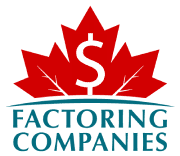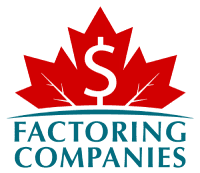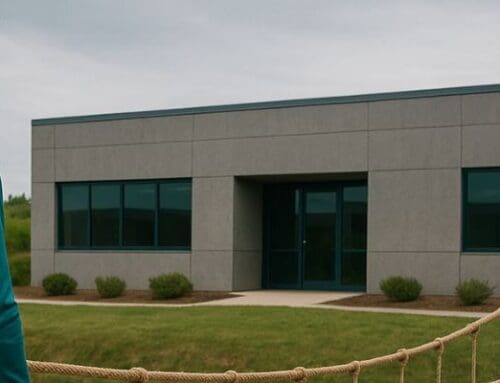
As with any financial service, there is a fee for factoring. The exact costs can vary widely from one factoring company to another, between two businesses working with the same factoring company, or even based on the terms you select with a factoring company. Below, we’ll take a quick look at why you’ll see these varying factoring costs and what they mean for your bottom line.
Core Considerations Influencing Factoring Costs
Invoice factoring involves selling your outstanding invoices to a factoring company so you can get quick access to cash. Instead of waiting weeks or months for customers to pay, you receive a percentage of the invoice’s value right away. Some factoring companies offer payments on the day you submit your invoices, though most will pay within one or two business days. While you won’t pay the balance back with interest like you would on a loan, you’ll likely pay fees like those outlined below.
Factoring Fee
The factoring fee is the primary cost involved in factoring. It’s typically between one and five percent of an invoice’s value.
Industry
Riskier industries like construction or trucking may face higher fees, while stable industries with predictable payment terms might get lower costs.
Client Creditworthiness
Factoring companies assess your clients’ ability to pay. If your customers are well-established, reliable, and have a good credit score, you’ll likely see lower costs. If your clients have poor payment histories or are newer businesses, expect higher fees.
Volume Discounts
The more invoices you factor, the better your rates could be. Many companies offer tiered pricing in this regard.
Advance Rates
Most factoring companies advance 60 to 95 percent of the invoice value. A higher advance often means higher fees due to the increased risk for the factoring company.
Additional Fees
Processing fees or administrative fees might also apply. These can vary, so always check the fine print.
The Effect of Contract Terms on Pricing

When you’re comparing factoring contracts, it’s not just about looking at the headline rates. There are several important terms that can really impact what you end up paying. Here’s what to keep an eye on.
Contract Length: Long-Term vs. Short-Term
Some factoring companies will lock you into a long-term contract, which can be great if you want stability, but make sure you’re comfortable with that commitment. Meanwhile, short-term or flexible contracts may come with slightly higher fees but give you more freedom to stop factoring if your cash flow improves or your needs change.
If you know you’ll need factoring for the long haul, a long-term contract might lower your overall cost. But if you’re unsure, look for a company that offers flexibility.
Minimum Volume Requirements
Some contracts will have minimum volume clauses, meaning you have to factor a certain amount of invoices each month or face penalties. If your business is seasonal or you can’t predict your factoring needs, these requirements can drive up costs unexpectedly.
For example, if you’re factoring in the slow months but don’t meet the minimum, you might be hit with fees that make it more expensive overall.
Recourse vs. Non-Recourse Factoring
Recourse factoring means that if your customer doesn’t pay, you’re responsible for repaying the advance. This type of factoring usually has lower fees. On the other hand, non-recourse factoring shifts the risk of non-payment to the factoring company. However, this extra security comes with higher costs.
If you trust your customers to pay reliably, recourse factoring could save you money. If your customers are more of a risk, non-recourse might be worth the extra expense.
Advance Rate and Reserve Release Terms
We talked about the advance rate earlier. That’s the percentage of the invoice you get upfront, which is usually 60 to 95 percent. The remaining five to 40 percent is held in reserve until the customer pays. A higher advance rate might sound appealing, but it can come with higher fees or slower reserve release.
Additional Fees
Your factoring agreement may also mention additional fees, such as the ones highlighted below.
- Termination Fees: If you want to exit the contract early, some companies will charge a hefty fee. Be sure to ask what this amount is before signing anything.
- Due Diligence Fees: Some companies charge upfront for credit checks or background research on your business.
- Processing Fees: These might apply for every invoice factored or for certain administrative tasks.
Competition and Market Trends
It’s also worth noting that the factoring industry is highly competitive, so the rates you’re offered are likely to be influenced by market trends and a need to offer rates close to what others in the industry charge.
How Market Dynamics Influence Rates
First, let’s take a quick look at some of the market dynamics that come into play.
Supply and Demand of Factoring Services
Just like any other industry, factoring is influenced by supply and demand. When more companies are looking for factoring, especially in challenging economic times, rates might increase as the demand for cash flow solutions grows. Conversely, when fewer businesses need factoring or the economy is stable, factoring companies may reduce rates to attract clients.
For example, in times of economic downturn, like during the COVID-19 pandemic, more businesses turned to factoring to stabilize their cash flow, which temporarily drove up rates as demand spiked. However, in more stable periods, factoring companies may lower rates to stay competitive.
Interest Rates and Financing Costs
The cost of borrowing from factoring companies affects the rates they offer to you. When interest rates are low, factoring companies can borrow money at lower costs, which allows them to pass those savings on to you through lower factoring fees. However, when interest rates rise, factoring companies may have to raise their fees to cover their own financing costs.
Industry-Specific Trends
Different industries experience different market dynamics. For example, if you’re in construction, where delayed payments are common, there might be higher demand for factoring, which can push up rates.
Transportation (like trucking) is another industry where factoring is heavily used, but competitive pressures among factoring companies targeting these sectors might result in better deals. For example, a trucking company may find it can secure better factoring rates during times when competition among factors for transportation clients heats up.
The Role of Competitive Bidding
When it comes to securing the best factoring deal, competitive bidding can be your best friend. Factoring companies want your business, and you can leverage this to get more favorable terms. Here’s how competitive bidding plays into the equation.
Shopping Around for the Best Deal
Just like you wouldn’t accept the first quote for a big project without comparing options, it’s important to shop around for factoring. Many factoring companies are willing to offer better rates or lower fees if they know you’re considering multiple offers. You can even use quotes from one company to negotiate with another, essentially playing them off against each other to get the best possible deal.
Factoring Companies Fighting for Market Share
Factoring is a competitive business, and as more companies enter the market, they often lower their fees or sweeten their terms to win market share. This competition can work in your favour. Newer factoring companies, or those trying to expand into your specific industry, might be more willing to negotiate on price or offer incentives like higher advance rates or waived fees for the first few months.
Using RFPs for Larger Contracts
If your business is factoring a large volume of invoices, you can even issue a request for proposal (RFP) to multiple factoring companies. This formal process invites companies to bid on your contract, and it often results in more competitive offers.
This method is particularly useful if you’re in an industry like manufacturing or wholesale, where you might have a higher volume of invoices to factor.
Why You’ll See Varying Factoring Costs Between Different Companies
So far, we’ve covered why factoring rates may vary from a multitude of perspectives, but what if you are looking at two identical contracts in regard to services offered, and the costs are still different?
While it’s tempting to choose the cheapest option when factoring invoices, it’s important to understand that you often get what you pay for. Here’s why some factoring companies charge a little more and why it’s often worth it.

Superior Customer Service and Collections Support
One of the biggest reasons some factoring companies charge more is because they offer exceptional customer service, especially when it comes to collections. A high-quality factor will act as an extension of your team, handling collections on your behalf in a professional and courteous way. This can actually improve your relationships with your customers, something that’s hard to put a price on.
- Proactive Collections Management: Top-tier factoring companies will have well-trained teams that reach out to your customers, follow up on payments, and handle disputes smoothly, without causing friction.
- Fewer Delays in Payment: Because they manage collections so effectively, you might see faster payments, which boosts your cash flow and can result in lower overall costs, even if your factoring rate is a little higher.
Investment in Technology
Factoring companies that invest in the latest tech often provide a better overall experience. While this investment can result in slightly higher fees, it pays off by making the entire factoring process smoother, faster, and more efficient.
- Digital Platforms for Invoice Submission: Some companies offer fully automated portals, where you can submit your invoices in a matter of clicks and track everything in real time. This saves you time and reduces errors.
- Quicker Approvals and Payments: High-tech systems can process invoices much faster, meaning you’ll get paid sooner. No one wants to wait weeks for approval, and factoring companies with strong tech infrastructure can often get you funds within a day.
Transparent Fee Structures (No Nickel-and-Diming)
It’s common to see factoring companies advertise rock-bottom fees, but what they don’t always tell you is that they charge for every little thing, such as credit checks, invoice processing, collections follow-up, and more. These hidden costs can add up quickly, and what looked like a good deal at first can end up costing you more in the long run.
- All-Inclusive Pricing: Top-tier factoring companies often offer transparent, all-inclusive pricing. This means you’re not getting hit with surprise fees every time they run a credit check or handle a dispute.
- Less Hassle: While the initial fee might be higher, you won’t have to worry about all those little charges adding up, and you’ll know exactly what to expect when it comes to costs.
Tailored Services for Your Industry
Some factoring companies go the extra mile by offering industry-specific expertise. They might charge more because they understand the unique challenges of your sector and can offer tailored factoring solutions to meet your needs.
- Specialized Factoring for Specific Industries: For example, a factor specializing in transportation might offer features like fuel advances or help managing load payments. A construction-focused factor might have more experience dealing with progress billing or lien rights.
- Deeper Understanding of Your Clients: These factors know the industries inside out, which can lead to faster approvals and fewer headaches when navigating specific industry challenges.
Faster and More Flexible Funding Options
Many top factoring companies offer higher advance rates and more flexible funding options to accommodate your cash flow needs. While this flexibility might come at a higher cost, it allows you to get more of your money upfront, helping your business stay nimble.
- Higher Advance Rates: Some companies will advance up to 95 percent of the invoice value, meaning you get more cash in hand right away, even though the factoring fee might be higher.
- Flexible Payment Terms: You might also get more flexibility in how you receive your funds.
Get Competitive Factoring Rates and Top-Notch Service
Now that you’re familiar with why factoring costs vary and what to look for in a factoring partner, it’s time to find the right fit for your business. At Factoring Companies Canada, we specialize in matching businesses with reputable factoring providers that offer competitive rates and exceptional service. Get started today by requesting a complimentary factoring quote.
FAQs on Varying Factoring Costs
Why do invoice factoring fees vary between companies?
Factoring fees vary due to differences in services offered, risk management, and industry focus. Companies that provide higher advance rates, faster payments, or enhanced customer service may charge more. Some companies invest in advanced technology to streamline the process, resulting in quicker payments but potentially higher fees. Others may offer lower rates but charge hidden fees for services like credit checks or invoice processing. It's important to compare the overall service, not just the headline rate, when choosing a factoring partner.
Is it worth paying more for a top-tier factoring company?
Yes, paying more for a top-tier factoring company can be worth it if it results in better service, faster payments, and fewer hidden fees. Top companies often invest in technology that speeds up approvals, offer transparent fee structures, and provide excellent customer service, including professional collections management. They can also offer more flexible terms and non-recourse factoring, which protects your business from the risk of non-payment. These added benefits can outweigh the slightly higher cost in the long run.
How can technology influence the cost of factoring services?
Factoring companies that invest in advanced technology often offer faster, more efficient service, which can impact costs. Digital platforms for invoice submission, real-time tracking, and automated approval processes can reduce delays, allowing you to get paid quicker. While these companies may charge slightly higher fees, the convenience and speed they provide can save your business time and administrative costs. Technology-driven factors are also less likely to hit you with additional fees for manual processes.
What’s the difference between recourse and non-recourse factoring, and how does it affect costs?
Recourse factoring means you're responsible if your customer doesn’t pay the invoice, so it typically comes with lower fees. Non-recourse factoring shifts the risk to the factoring company—they bear the loss if the customer doesn’t pay, but this added protection results in higher fees. Businesses working with riskier clients might choose non-recourse factoring for peace of mind, even though it costs more.
Do factoring companies charge hidden fees?
Some factoring companies charge additional fees for services like credit checks, invoice processing, or collections. These extra costs can add up quickly, making what seemed like a low fee much more expensive. Reputable factoring companies often offer transparent, all-inclusive pricing, so you know exactly what you're paying for. Always ask about any potential hidden fees before signing a contract.
How can competitive bidding lower my invoice factoring costs?
You can lower your factoring costs by getting multiple companies to bid on your business. When factoring companies know they’re competing for your account, they’re more likely to offer lower rates, better advance terms, or waive certain fees. This approach is especially useful if you have a high volume of invoices to factor, as companies will compete more aggressively for larger contracts.
What should I look for in a factoring contract to avoid unexpected fees?
To avoid unexpected fees, carefully review the contract for details on hidden charges like processing fees, credit checks, and collection costs. Also, check for minimum volume requirements or early termination penalties. Look for transparent, all-inclusive pricing where possible, and ensure you understand the terms around advance rates, reserve releases, and any fees associated with non-payment or recourse factoring.
Why might a factoring company charge higher rates for my industry?
Factoring companies assess the risk associated with each industry. For sectors like construction or trucking, where payment terms can be unpredictable and disputes are common, rates are often higher. If your industry has a high risk of non-payment or slow payment, factoring companies may charge more to compensate for the additional work or risk involved.
Can I negotiate better terms with my factoring company?
Yes, you can often negotiate better terms with your factoring company, especially if you factor a high volume of invoices or have strong customer credit. You can request lower factoring fees, higher advance rates, or the elimination of certain fees like credit check charges. It’s always a good idea to shop around and use competitive bidding to get the best deal.

About Factoring Companies Canada
Related Insights
Get an instant factoring estimate
Factoring results estimation is based on the total dollar value of your invoices.
The actual rates may differ.
CLAIM YOUR FREE FACTORING QUOTE TODAY!
PREFER TO TALK?
You can reach us at
1-866-477-1778
Get an instant factoring estimate
Factoring results estimation is based on the total dollar value of your invoices.
The actual rates may differ.
CLAIM YOUR FREE FACTORING QUOTE TODAY!
PREFER TO TALK? You can reach us at 1-866-477-1778











